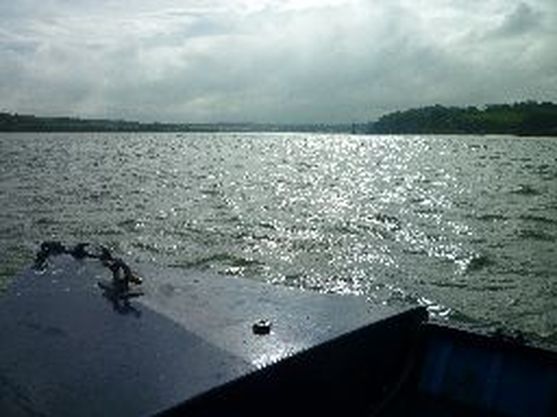The question posed to us by this workshop, then, demanded a rather different way of thinking about the politics of water. Does water have the capacity to act (to originate something new)? Can it speak? What kind of practices must we invent in order to listen to it? We know, of course, that water can be immensely powerful. The news media continually fold water into political discourses through dramatic images of the destructive power of its presence, circulation or absence: floods, droughts, storms, torrents, waves, surges, tsunamis, glaciers. Our own encounters with water on this workshop, whether walking, swimming, or sitting on a boat, invited us to reflect on other powers: the power to evade, to transport, to conduct heat, to reflect light, to nurture life, to hasten death, to enliven the senses.
What kind of authority might water exercise? Classical models of politics tend to revolve around key figures of authority such as doctor, teacher and priest. Authority figures such as these offer verbal advice that cannot safely be ignored. The richly embodied nature of the activities of the workshop, however, suggested that taking advice from water will involve less representational manoeuvres. The authority of water is likely to lie, not so much in its ability to enter ‘in conversation with’ human others, or to stride forth into the demos, as in its capacity to co-operate in a democratization of the senses and a re-education of the body. Water can perhaps take on a role of healing, teaching, and spiritual guidance. Indeed, it has deployed this more-than-human authority in many different ways throughout history, not least in the major world religions such as Hindu that take guidance from water as a sacred space.
What, then, does water teach us, and how might this invigorate democratic politics? As with all democratic teaching, the lesson will offer different things to different students. Water, after all, takes an infinite variety of different forms, and it already participates in every aspect of our lives. The activities of the workshop, tracing the flows and traces of water in the biosphere, navigating the river, loping barefoot in the mud, leaping in the water, forced me to think about water’s indifference to human affairs, its vastly expanded temporal horizon. Water’s lesson, perhaps, doesn’t come from ‘listening’ to it, or from trying to ‘think as’ water through a kind of empathic communication, but from encountering it in its difference, its muteness, its remoteness from human concerns. Indeed, it is this blankness, this link to the distant past and far future, that is the mysterious source of water’s authority.

 RSS Feed
RSS Feed
